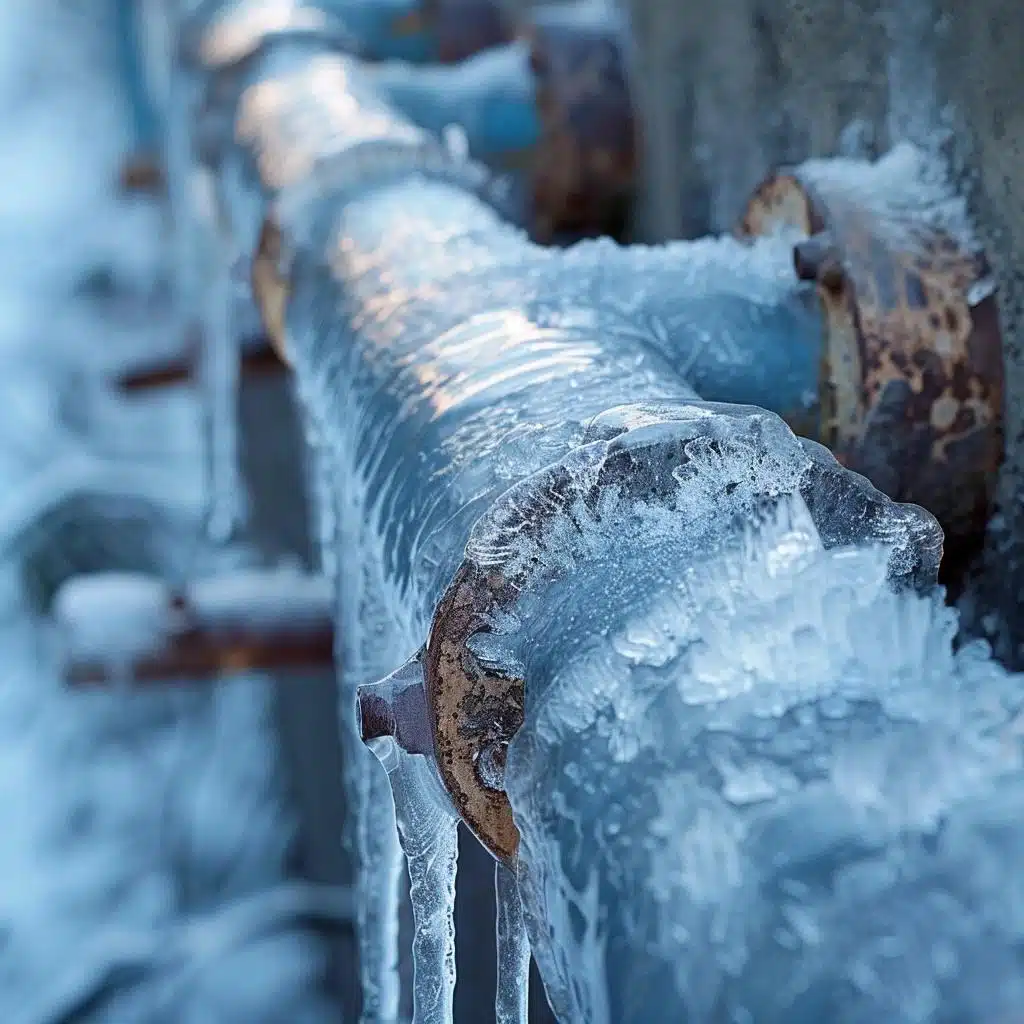Tips for Avoiding Frozen Plumbing in Winter: Expert Tips
Hire A ProThe article author is making several good annotation regarding How To Avoid Freezing Pipes overall in this great article just below.

Winter can wreak havoc on your pipes, specifically by freezing pipes. Here's how to prevent it from happening and what to do if it does.
Intro
As temperature levels decrease, the risk of icy pipes increases, possibly causing expensive repairs and water damages. Understanding just how to avoid frozen pipelines is essential for home owners in chilly environments.
Understanding Frozen Pipelines
What creates pipes to freeze?
Pipes ice up when exposed to temperatures below 32 ° F (0 ° C) for extended periods. As water inside the pipes ices up, it expands, putting pressure on the pipeline wall surfaces and potentially causing them to rupture.
Dangers and problems
Icy pipelines can lead to supply of water interruptions, property damages, and pricey repairs. Burst pipelines can flooding homes and create considerable architectural damages.
Indications of Frozen Water Lines
Determining frozen pipelines early can stop them from rupturing.
Exactly how to identify icy pipelines
Search for decreased water circulation from faucets, unusual smells or noises from pipelines, and noticeable frost on exposed pipelines.
Prevention Tips
Shielding prone pipes
Cover pipes in insulation sleeves or utilize heat tape to secure them from freezing temperatures. Concentrate on pipes in unheated or external areas of the home.
Home heating techniques
Keep indoor spaces appropriately heated up, specifically areas with plumbing. Open up cabinet doors to enable cozy air to distribute around pipes under sinks.
Protecting Outdoor Pipes
Garden tubes and outdoor taps
Detach and drain yard hoses before winter season. Set up frost-proof faucets or cover exterior taps with shielded caps.
What to Do If Your Pipelines Freeze
Immediate activities to take
If you suspect icy pipelines, maintain taps open up to soothe stress as the ice thaws. Utilize a hairdryer or towels soaked in hot water to thaw pipes gradually.
Long-Term Solutions
Architectural modifications
Think about rerouting pipes far from outside walls or unheated areas. Include additional insulation to attics, cellars, and crawl spaces.
Upgrading insulation
Invest in high-grade insulation for pipelines, attics, and wall surfaces. Proper insulation aids preserve regular temperature levels and minimizes the risk of frozen pipes.
Verdict
Avoiding frozen pipelines needs proactive procedures and fast responses. By comprehending the reasons, signs, and safety nets, homeowners can secure their pipes throughout cold weather.
Helpful Tips to Prevent Frozen Pipes this Winter
UNDERSTANDING THE BASICS: WHY PIPES FREEZE AND WHY IT’S A PROBLEM
Water freezing inside pipes is common during the winter months, but understanding why pipes freeze, and the potential problems it can cause is crucial in preventing such incidents. This section will delve into the basics of why pipes freeze and the associated problems that may arise.
THE SCIENCE BEHIND FROZEN PIPES
When water reaches freezing temperatures, it undergoes a physical transformation and solidifies into ice. This expansion of water as it freezes is the primary reason pipes can burst. As the water inside the pipe freezes, it expands, creating immense pressure on the walls. If the pressure becomes too great, the pipe can crack or rupture, leading to leaks and water damage.
FACTORS THAT CONTRIBUTE TO PIPE FREEZING
Low Temperatures: Extremely cold weather, especially below freezing, increases the risk of pipes freezing. Uninsulated or Poorly Insulated Pipes: Pipes located in unheated areas, such as basements, crawl spaces, or attics, are more prone to freezing. Insufficient insulation or lack of insulation altogether exacerbates the problem. Exterior Wall Exposure: Pipes running along exterior walls are susceptible to freezing as they encounter colder temperatures outside. Lack of Heating or Temperature Regulation: Inadequate heating or inconsistent temperature control in your home can contribute to frozen pipes. PROBLEMS CAUSED BY FROZEN PIPES
- Pipe Bursting: As mentioned earlier, the expansion of water as it freezes can cause pipes to burst, resulting in significant water damage.
- Water Damage: When pipes burst, it can lead to flooding and water damage to your property, including walls, ceilings, flooring, and personal belongings.
- Structural Damage: Prolonged exposure to water from burst pipes can compromise the structural integrity of your home, leading to costly repairs.
- Mold and Mildew Growth: Excess moisture from water damage can create a favorable environment for mold and mildew growth, posing health risks to occupants.
- Disrupted Water Supply: Frozen pipes can also result in a complete or partial loss of water supply until the issue is resolved.
WHY CERTAIN PIPES ARE MORE PRONE TO FREEZING
- Location: Pipes located in unheated or poorly insulated areas, such as basements, crawl spaces, attics, or exterior walls, are at higher risk of freezing.
- Exterior Pipes: Outdoor pipes, such as those used for irrigation or exposed plumbing, are particularly vulnerable to freezing as they are directly exposed to the elements.
- Supply Lines: Pipes that carry water from the main water supply into your home, including the main water line, are critical to protect as freezing in these lines can affect your entire plumbing system.
- Underground Pipes: Pipes buried underground, such as those connected to sprinkler systems or outdoor faucets, can be susceptible to freezing if not properly insulated.
https://busybusy.com/blog/helpful-tips-to-prevent-frozen-pipes-this-winter/

As a passionate person who reads about Prevent Frozen Pipes , I think sharing that excerpt was essential. Enjoyed reading our review? Please quickly share it. Help someone else locate it. Thanks a bunch for your time. Return soon.
Services